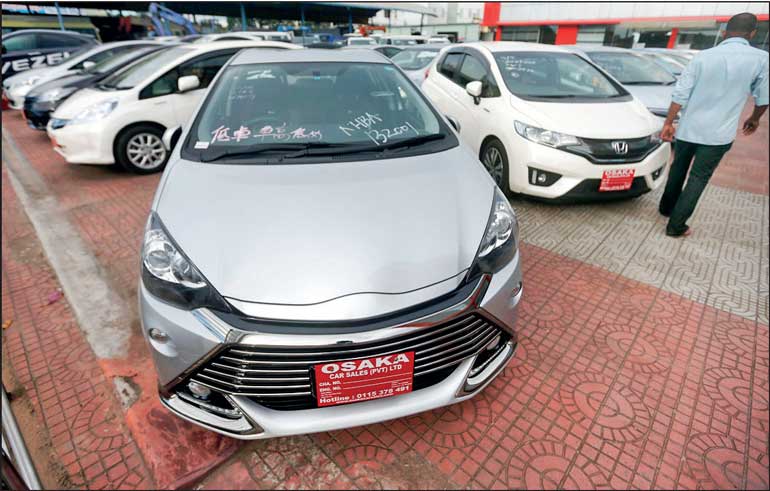Sunday Feb 22, 2026
Sunday Feb 22, 2026
Wednesday, 15 January 2025 00:00 - - {{hitsCtrl.values.hits}}

The Vehicle Importers Association of Sri Lanka (VIASL) President Prasad Manage clarified that while the Government’s gazette notification highlights excise duty structure, the final tax on vehicles will depend on multiple layers of taxation and additional costs.
“The Government’s excise duties for vehicle imports range between 200% and 300%, with some vehicles facing taxes as high as 400% or 500%,” he told the media.
Manage explained that these figures represent only one component of a complex pricing structure.
There are four types of taxes to determine total amount of tax on vehicle imports, which includes; special tax on vehicle levies, luxury taxes, excise duty and value added tax.
“Other taxes, including a special import tax calculated based on the vehicle’s value, luxury taxes, Customs duties and existing 18% VAT — must be factored in alongside the cost, insurance and CIF value.
In some cases, the cumulative taxes on certain vehicles could soar by as much as 600%,” he said.
Manage advised the public to avoid making advance payments or reserving vehicles before the import process officially resumes, cautioning that the final costs will only be clear after all levies are calculated.
Despite the confusion, preliminary price listings for petrol and hybrid vehicles have emerged.
Popular petrol models include the Suzuki Every at Rs. 1.3 million, the Toyota Corolla at Rs. 6.6 million, and the Nissan Dayz at Rs. 1.9 million. Hybrid vehicles such as the Suzuki Wagon R and Honda Fit start at Rs. 1.8 million and Rs. 3.5 million, respectively, while premium models like the Toyota Prius are priced at Rs. 11.3 million.
These figures, however, do not yet reflect the full impact of layered taxes.
Separately, Vehicle Importers Association of Lanka (VIAL) President Sampath Merenchige urged the Government to reconsider restrictions on older vehicle imports.
He proposed allowing the import of vehicles exceeding five years from their date of manufacture, noting that Japan frequently cycles out vehicles after five years. This, he argued, could lower costs and broaden consumer options.
Vehicle importers are calling for a balanced approach that considers consumer affordability, tax revenue and market sustainability over the recently announced excise duty rates for vehicle imports and warning against premature panic.
Meanwhile, the Government has announced that the taxes on fuel, effective since January 2024, will remain unchanged. This means petrol carries a tax of Rs. 72 per litre, super diesel Rs. 57 per litre, and auto diesel Rs. 50 per litre.
With vehicle imports set to resume on 1 February 2025, all eyes are on the Government’s final taxation structure and its broader implications for the automobile industry.